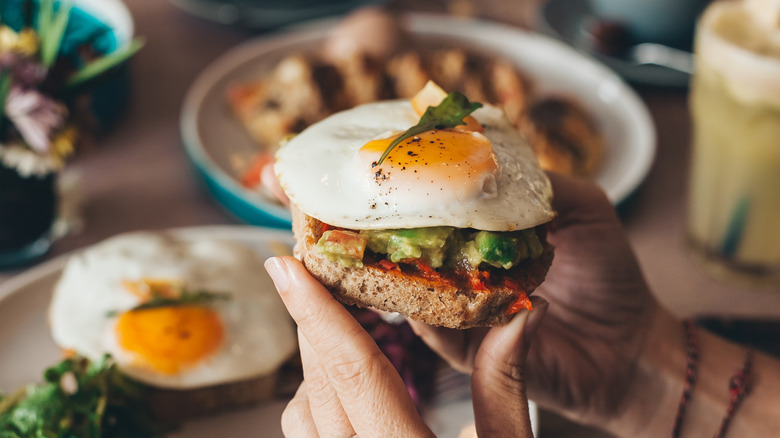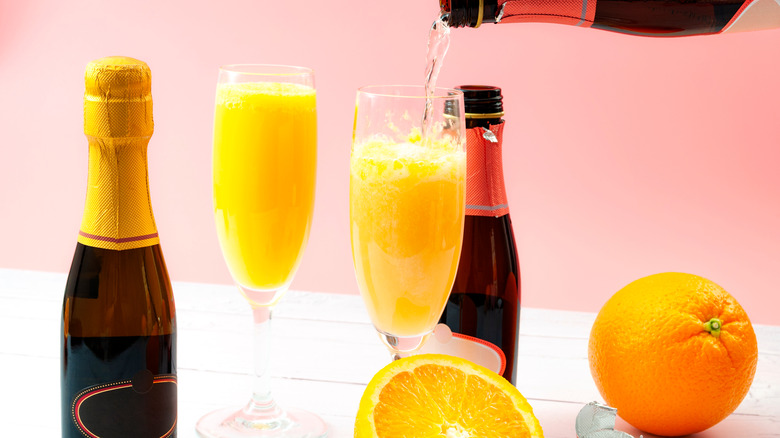How A Hangover Led To The Creation Of Brunch
Eggs Benedict, avocado toast, French toast, and bagel with lox are just some of the many items that grace brunch menus all across the country. Of course, no midday meal is complete without something to drink — preferably fruit juice, and preferably spiked. But, while sipping a boozy cocktail can often be a recipe for disaster, one man's hangover actually led to something revolutionary: brunch, the breakfast-meets-lunch meal that we all know and love.
Although there can be some confusion as to exactly what time of day it can be enjoyed, there is a fair bit of flexibility. The Kitchn explains that brunch can happen anytime between 11 a.m. until 4 p.m., but anything beyond that is erring towards linner (a lunch/dinner hybrid).
Given that brunch is also limited to weekends when time is more relaxed and expendable, aficionados agree that it's best enjoyed socially.
Brunch lets you ease into the day
Although VinePair notes that some food historians trace brunch's origins to the grandiose European breakfasts or the feast following a religious fast, the true origins of the meal are actually a solution to combat the dreaded weekend hangover.
Englishman Guy Beringer originally coined the term in his 1895 essay, Brunch: A Plea, reports Mental Floss. Defending his idea of easing into a midday fusion meal, the writer suggested it could nurse a weekend hangover. It could also serve as the perfect occasion to share in the previous night's shenanigans as Beringer proposed that brunch could be "cheerful, sociable, and inciting."
Despite his best efforts to introduce brunch into dining repertoire, Americans didn't adopt the meal until decades later. While celebrities had a role in popularizing brunch, The New York Times explains that the decline of church-goers after WWII prompted Americans to adopt a day of rest and relaxation — and what better way to do that than with a lazy little brunch.

